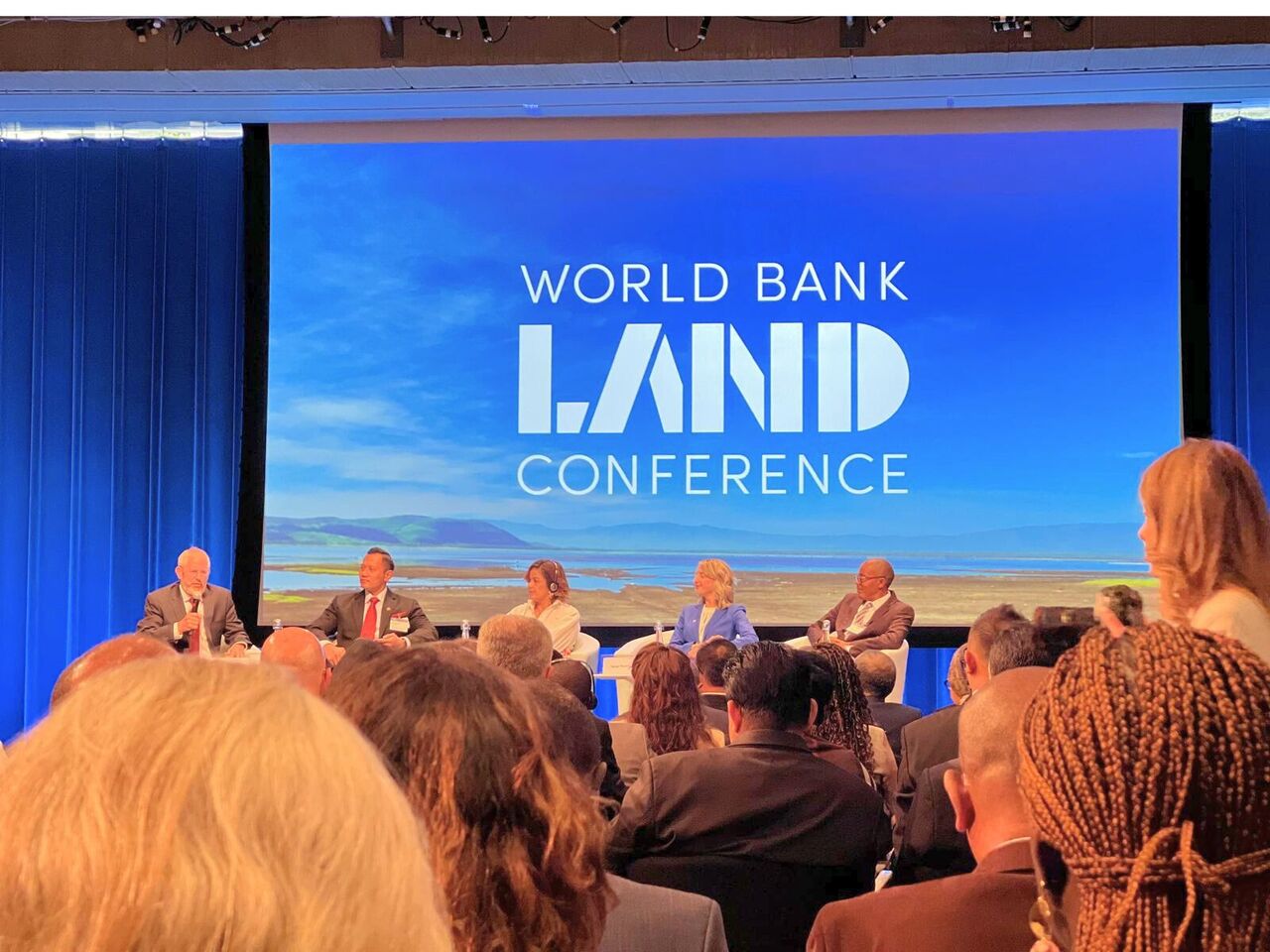
Creats International at the 2024 World Bank Land Conference in Washington, DC.
The World Bank Land Conference concluded last Friday, 17, 2024 after week-long deliberations on securing land tenure for climate action. The conference brought together stakeholders to take stock of the global land policies and share innovative research and best practices to advance evidence-based decision-making on land tenure.
The stakeholders underscored the pivotal role of land tenure in investments, securing resilient livelihoods, and adapting to climate change. Nonetheless, stakeholders were concerned that only 30 percent of the global population had registered land tenure rights. It was noted that women, youth, and other vulnerable members of the community face additional challenges to access land tenure rights despite several countries having enacted land laws and regulations.
The implementation of land laws remains elusive in some countries, especially in the global south. This was attributed to sticky cultural norms, mistrust of the government by community members, and a lack of awareness about land laws by the general public.
Stakeholders reiterated the intricate links between land tenure rights and other human rights like water rights, food sovereignty, and community resilience broadly. Consequently, there were resounding calls for continued action in the following key areas:
First, stakeholders emphasized the vital role of local ownership as a vehicle for community stewardship in protecting lands and tenure rights. This means that stakeholders need to intentionally build relationships with local communities, respect their cultures, and tap into their indigenous knowledge to secure land rights for the community members.
Traditional or customary land rights emerged as a resource that could be tapped into. Stakeholders from Peru particularly highlighted how they leverage customary land rights through storytelling and dances to promote intergenerational dialogues on land tenure rights.
Intergenerational dialogue emerged as a tool to bridge the age gap and teach more young people community traditions while also instilling the values of land and land conservation among young people. This process involves integrating both traditional and modern technologies to ensure no one is left behind.
There was an emphasis on leveraging new technologies to continue expanding land tenure rights. However, using such technologies calls for enhancing the competencies and building new human capital to effectively use existing technologies.
The need for funding was underscored, not only as a tool to accelerate the use of technologies in land tenure but also tap into local knowledge. Funding should trickle down to local grassroots organizations with deep knowledge of existential cultural, social, and economic barriers and how to solve them. Additionally, funding should also build the capacities of local institutions to ensure project sustainability.
Stakeholders also underscored the need for broad-based partnerships to address community challenges. Through partnerships, organizations break out of their shells to talk to each other and formulate integrated approaches to address land tenure rights and other land-related rights like water rights.
Additionally, stakeholders buttressed the cardinal role of accurate, reliable, and dependable data on land to advance evidence-based decision-making. However, there was a call to action to prioritize gender-disaggregated data to help locate and support vulnerable groups like women, youth, and other people being left behind in accessing tenure rights.
Alongside data, there should be effective monitoring and evaluation (M&E) systems embedded into all land tenure programs. In addition, M&E should integrate proper learning mechanisms to foster people-centric and demand-driven land tenure systems through a feedback loop system that allows for iterations and modifications as needed.
Lastly, adopting agroecological practices was noted to enhance land tenure rights but also conserve land resources like water rights. Such processes involve effective community participation in land tenure programs like agroforestry. Most importantly, there is a need for collective action and polycentric governance for climate resilience through integrated approaches that protect and conserve land resources.